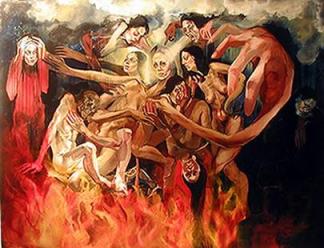Zij gebruikten op het einde van de vorige eeuw nog steeds de Oude Nederlandse Statenvertaling met haar oubollig woordgebruik. Dit deed mijn inziens veel meer mensen afstappen om niet met onze gemeenschap vertrouwd te geraken dan mensen te lokken.
Ik had zelf enkele jaren mee gewerkt aan een hedendaagse vertaling en promote deze dan ook om te gebruiken. Vele jaren later hebben zij dan eindelijk die stap gemaakt. (Maar het heeft wel zeer lang geduurd) Nochtans vind ik het spijtig dat zij niet meerdere Bijbelvertalingen durven te gebruiken, zodat er geen misverstand kan ontstaan dat de Broeders in Christus of Christadelphians een "eigen Bijbelvertaling" zouden gebruiken om hun eigen leerstellingen te staven.
Het gebeurd namelijk zeer dikwijls dat mensen beweren dat een Bijbelvertaling door een bepaalde gemeenschap zodanig zou herschreven zijn dat zij in de kraam van die geloofsgroep zouden passen. Zo beweren heel veel mensen dat de Getuigen van Jehovah hun eigen Bijbel hebben geschreven zodat deze hun leer zou bevestigen.
De Nieuwe Wereld Vertaling die de Getuigen van Jehovah uitgeven, mag dan al door een niet geliefde geloofsgroep uitgegeven zijn, het is één van de nauwkeurigste Nederlandstalige Bijbelvertalingen in een goede hedendaagse schrijftrant.
Speciaal voor Nederlandse lezers heeft Prof. dr. Benno A. Zuiddam een samenvatting gemaakt van de onderzoeksresultaten van zijn artikel in Neotestamentica (Neotestamentica, Volume 52 Number 2, Dec 2018, p. 433 -470), dat ook een lijst bevat van de betrokken verzen zodat die na te slaan zijn in de godsdienstklas of catechisatie. Daarbij heeft hij gebruik gemaakt van Google translate, zodat vooral in de voetnoten het Nederlands niet altijd vlekkeloos is.
Voor hem valt het op dat er drie verschillende categorieën van weglatingen zijn: speciale statusverzen, 'ontbrekende' verzen en belangrijke weglatingen uit de huidige verzen. Dit zijn allemaal bijbelgedeelten die door latere tekstreconstructies niet authentiek zijn bevonden.
Men mag niet vergeten dat in vele Bijbelvertalingne ook wordt aangegeven wanneer er twijfel is over een bepaalde tekst of ontbrekende tekst. Hoewel ze niet echt 'ontbreken', worden ze gemarkeerd als dubieus of niet authentiek. Het feit dat de meeste Bijbels deze verzen toch afdrukken, moet ons niet doen denken dat bijbels die deze verzen niet vermelden dan tekort zouden schieten. (Lees hier over: De verdwenen verzen in moderne Bijbels)
In dat artikel staan meer dan twintig verzen die uit moderne Bijbels verdwenen zijn, maar wel in de Statenvertaling staan. Dit controleren is een leuk project voor de godsdienstles of de catechisatie.Benno Zuiddam merkt op
De overlevering zit vol fouten, zegt men, en wij moeten de oorspronkelijke tekst van de Schrift proberen te reconstrueren. Pas sinds een kleine honderd jaar denken we dat dit wenselijk en mogelijk is. Of benaderd kan worden.
Heel wat Nederlandse kerkgemeenschappen gaan voort met hun eeuwenoude traditie van een bepaald woordgebruik. Bepaalde protestantse groepen gaan daarin zo ver dat zelfs hun zogenaamde nieuwe Bijbelvertalingen nog vol ouderwetse woorden een zinsvormen staan. De Herziene Statenvertaling blinkt niet echt uit van een hedendaags taalgebruik.
Omtrent vertalingen merkt Zuidma nog op
Door zinsdeel voor zinsdeel uit duizenden handschriften te kiezen, werd een reconstructie van de oorspronkelijke tekst beoogd. Technisch werd het echter een nieuwe tekst, waarvoor als zodanig echter primaire bronnen ontbreken. Het is dus een zaak van geloof in de afwegingen van het comité en in de religieuze wenselijkheid van zo’n reconstructie.
Lees verder meer in: Maakt het uit welke Bijbel je gebruikt?




